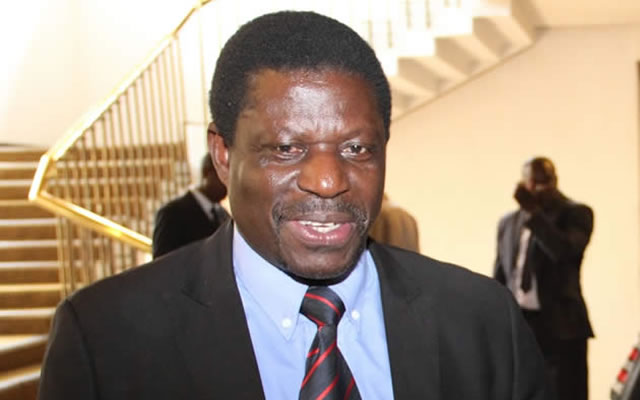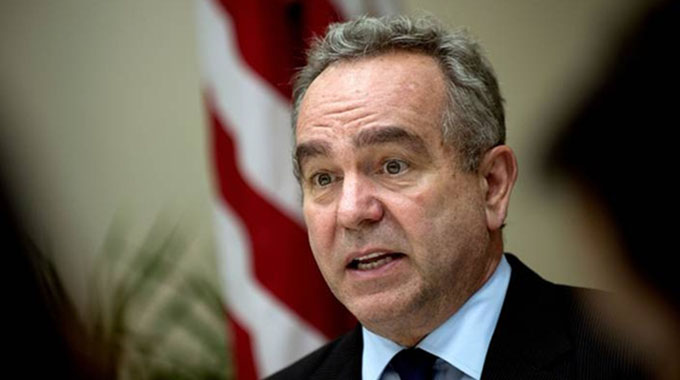New Boko Haram leader threatens to kill Christians

LAGOS. — Nigeria’s Boko Haram Islamic extremists have a new leader who is threatening to bomb churches and kill Christians while ending attacks on mosques and markets used by ordinary Muslims, according to an interview published on Wednesday by the Islamic State group. He also says there is a Western plot to Christianise the region and has accused charities of using their aid for that, according to a SITE Intelligence Group translation of an interview published on Wednesday in the ISIS newspaper al-Nabaa.The newspaper identified Abu Musab al-Barnawi as the new “Wali,” or governor, of its so-called West Africa Province. The “Wali” title was previously used to describe long-time Boko Haram leader Abubakar Shekau.
The report did not say what Shekau’s current status was, although there have been rumours for weeks that he had been replaced.
The interview with al-Barnawi indicates a major shift in strategy for the Nigerian extremists, who have killed many more Muslims than Christians in attacks in mosques with suicide bombers and gunmen.
There have also been attacks on crowded market places in predominantly Muslim areas and the killings and kidnappings of school children.
The targeting of students accounts for its nickname Boko Haram, which means Western education is sinful or forbidden.
“They strongly seek to Christianise the society . . . They exploit the condition of those who are displaced by the raging war, providing them with food and shelter and then Christianising their children,” SITE Intelligence quotes the new leader as saying.
Al-Barnawi says the militants will respond to that threat by “booby-trapping and blowing up every church that we are able to reach, and killing all of those (Christians) who we find from the citizens of the cross.”
Yesterday’s announcement indicates a coup by Boko Haram breakaway group Ansaru against Shekau, and follows a trend of extremist Islamic groups moving away from al-Qaeda to ISIS, analyst Jacob Zenn said.
Ansaru broke away from Boko Haram because it disagrees with the indiscriminate killing of civilians, especially Muslims.
In a new development, Boko Haram’s elusive leader Abubakar Shekau said in an audio message on Thursday that he was still around despite earlier reports that he had been replaced as head of the Nigeria-based jihadist group by ISIS.
“People should know we are still around. We will never cause any discord among the people . . . we will live by the Qur’an,” Shekau said in a 10-minute audio message.
“This is our stand and we remain in our capacity as Jama’atu Ahlissunnah Lidda’awati Wal Jihad,” he said using the Islamic name for the hardline jihadist group.
His voice was recognised by an AFP journalist familiar with previous messages he has posted on social media.
It was also confirmed as Shekau’s voice by Berlin-based expert Yan St-Pierre of the Modern Security Consulting Group.
Shekau’s audio message was released in response to reports that he had been purportedly replaced by Sheikh Abu Musab al-Barnawi, a former ISIS spokesperson.
In the latest edition of ISIS’s online weekly magazine Al-Naba, which was published on Tuesday, there was an interview with Barnawi in which he was introduced as Boko Haram’s new leader
In March 2015, Boko Haram pledged allegiance to ISIS.
But Shekau dismissed Barnawi as an infidel who condoned living in an un-Islamic society without waging jihad.
The shadowy leader’s absence in recent months has sparked speculation about his fate and whether or not he had been deposed as leader.
He became Boko Haram leader after Nigerian security forces killed the group’s founding chief Mohammed Yusuf in 2009, sparking an insurgency that has left 20 000 people dead and forced 2,6 million people to flee their homes.
Boko Haram has been pegged back by an aggressive fightback from the Nigerian military since January 2014, losing territory and its capacity to mount conventional attacks. — AP/AFP.










Comments